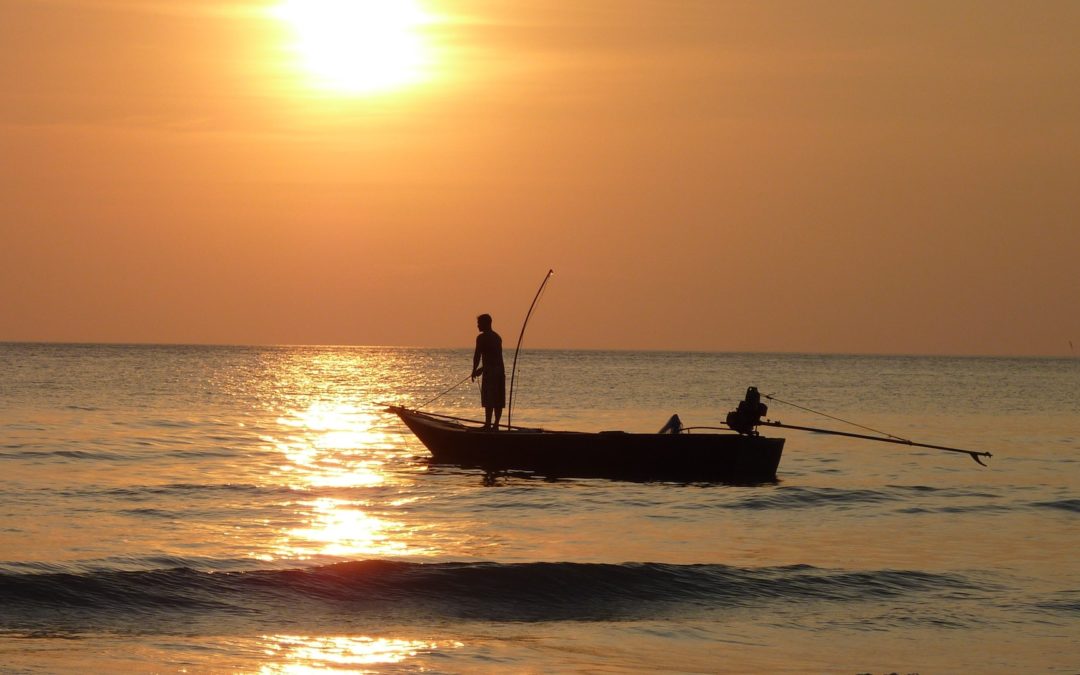After that he began to dream of the long yellow beach and he saw the first of the lions … and he waited to see if there would be more lions and he was happy.
What do lions have to do with a book about fishing off the coast of Cuba? According to Ernest Hemingway’s The Old Man and the Sea: everything.
I’m not really into deep sea fishing. I grew up in South Florida, not far from where the events of this book take place. Yet I’ve only gone deep sea fishing once as far as I can remember—and it was after I had moved away from the area. Therefore the majority of this great work of literature—which earned Hemingway a Nobel Prize—wasn’t terribly captivating for me. But the final third or so of the book is an absolute gem!
If Only…
Back to the lions. Hemingway’s hero—the old man—dreams of lions: lions he will never see nor ever dominate. Yet, he equates these lions with happiness. Isn’t this something we can all fall into? Always wanting something more, something other than what we have available that will finally make us happy. “If only this” or “if only that … ”
In a way, the old man is looking back on his long life and thinking about happiness—or lack thereof. Of all the massive fish he has caught, of his heroics at sea, of his wife, now dead. Even of the Our Fathers and Hail Marys he mumbled in his youth. Did all of it, taken collectively, or even any of it, make him happy?
An unnamed boy brings him happiness when they are together. But that is just a short span of the story and a brief period within the old man’s life. In a way, the boy is just an audience, a momentary quelling of the loneliness of this widower—often lost at sea—alone with nothing but his thoughts. At times the old man speaks his thoughts aloud to the black hole of the sea, to the floating nothingness surrounding him.
Another Old Man
Cassandra recently read (and reflected upon) For Whom the Bell Tolls also by Hemingway. I decided to re-read the only work by Hemingway we had handy—The Old Man and Sea—for little reason other than her enthusiasm for this author and the fact that the book is short. Little did I realize the parallels it presented with a situation in my own life, a different old man—my grandfather—and the sea of his enduring loneliness.
On the first of October, my grandfather was visiting my parents in New Jersey and fell, breaking his hip. He was subsequently hospitalized and operated on to partially replace his left hip. I visited him in the hospital the day after the surgery. In the course of our conversation, he uttered words which I feel could be found in the pages of a novel, perhaps, in fact, in The Old Man and the Sea. What he said to me was this: “It’s a great loneliness. You’ll see. It’s a great loneliness.”
Almost 102
There are several parallels between my grandfather and the personage of the old man in Hemingway’s classic work. My grandfather’s occupation was manual labor—working on the railroad—like Hemingway’s old man, who labored as a fisherman. Both men survived their late wives; my grandmother died last year. And both men found themselves near the end of their lives somewhat (maybe quite a bit) estranged from the Catholic faith of their youth, and probably from God therefore as well.
Yet the most obvious parallel between the two men is their existential loneliness, the “great loneliness” of which my grandfather spoke. The old man of the novel spends the vast majority of the narrative alone on the sea. My grandfather has been spending the vast majority of his time “alone” in a nursing home. Barely able to hear, his communication is therefore only one-way. Remarkably, his cognitive abilities have hardly slipped even after almost 102 years of life. Surrounded by others whose minds and bodies have long withered, he is frustrated. My father is able to visit frequently, but—even with this—many, many hours of the day pass in silence, alone with his thoughts, his ruminations, his past.
The Mountain of One’s Life
The old man encounters the sea in an effort to subdue it. I’ll let you read the novel itself to find out how successful he is with this or not. Yet it does not make him happy. Daydreams of lions —or so he thinks—will. In the end, happiness is ever elusive, like the slippery waves of the sea.
It’s a “great loneliness” to be standing upon the mountain of one’s long life and not see the Creator and Redeemer who has been there all along. I know this fate could all too possibly be my own as well. What a powerful examination of conscience to picture oneself at 102 and try to see what one’s interior life would be like facing all those challenges of old age.
Were the old man of Hemingway’s classic a real person, I would pray for him to find the God of his youth rather than the lions of his fancy. And I invite you to pray with me for my grandfather that he may one day enter into the joy and company of the blessed and quell his great loneliness with the tender and merciful friendship of the God who loves him.



Thank you, Chris! I am praying for your grandfather!
Thanks so much, Jeanne! We appreciate it!